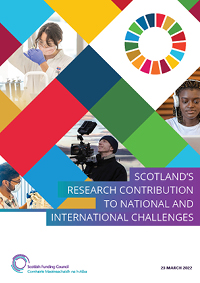SFC news published since 2018. See SFC archived content for earlier news articles.

University of Edinburgh researchers have played a pivotal role in informing global climate change mitigation policy for nearly two decades. Among the first to demonstrate the link between human-caused greenhouse gas emissions and climate change, their research formed the scientific foundation of the 2015 Paris Agreement.
The Edinburgh team uses a technique which involves analysing temperature data before and after the industrial revolution against emissions and natural climatic events, such as solar warming and volcanic eruptions. This allows researchers to isolate climate changes only humans could cause. Using these results, Edinburgh researchers can predict how much warming different future scenarios will cause.
Six years after the Paris Agreement, the latest IPCC report did not offer much cause for celebration. Described by its authors as a “code red for humanity”, the report said a 1.5°C rise in temperatures and, along with it, more flooding, droughts and wildfires, is now inevitable by 2040.
Edinburgh research contributed to the most recent report as well as the IPCC’s 2018 landmark special report that showed humanity’s wriggle room was being squeezed. It said that the level of carbon emissions the world could withstand during the next century without temperatures rising beyond 1.5°C threshold was 40 per cent less than originally estimated. This work also showed that this temperature rise started earlier than often recognised.
The impact of the research has been a galvanising effect on policymakers, leading countries such as the UK to accelerate their commitments to achieving net-zero CO2 emissions by transitioning to a post-carbon economy.

